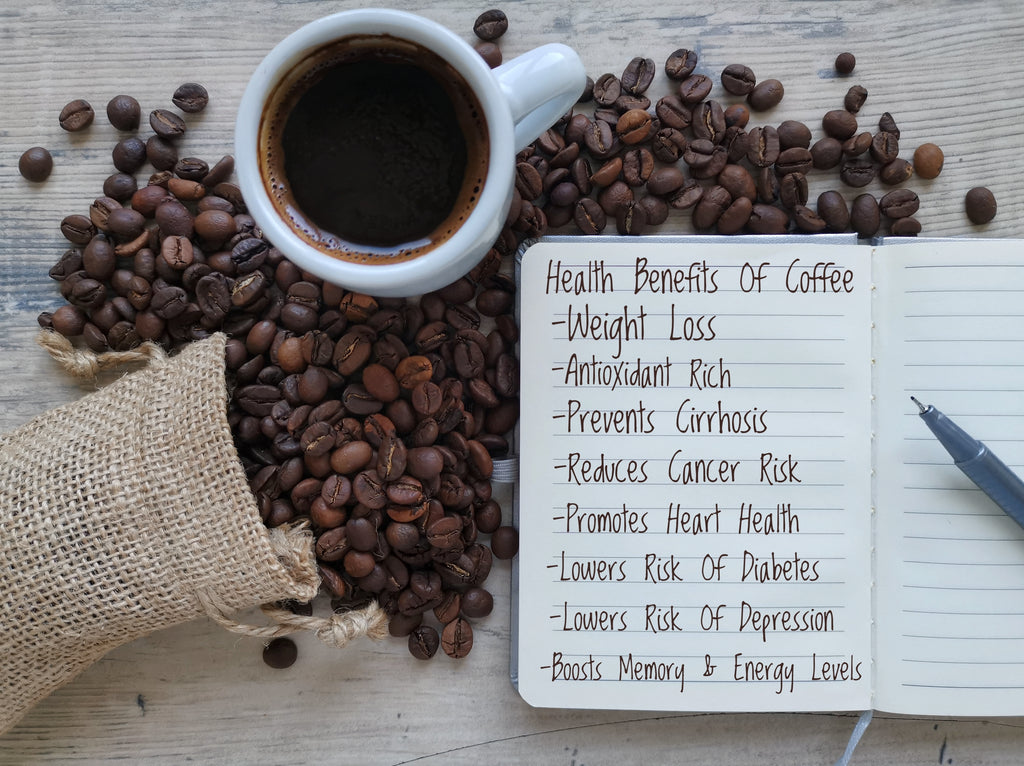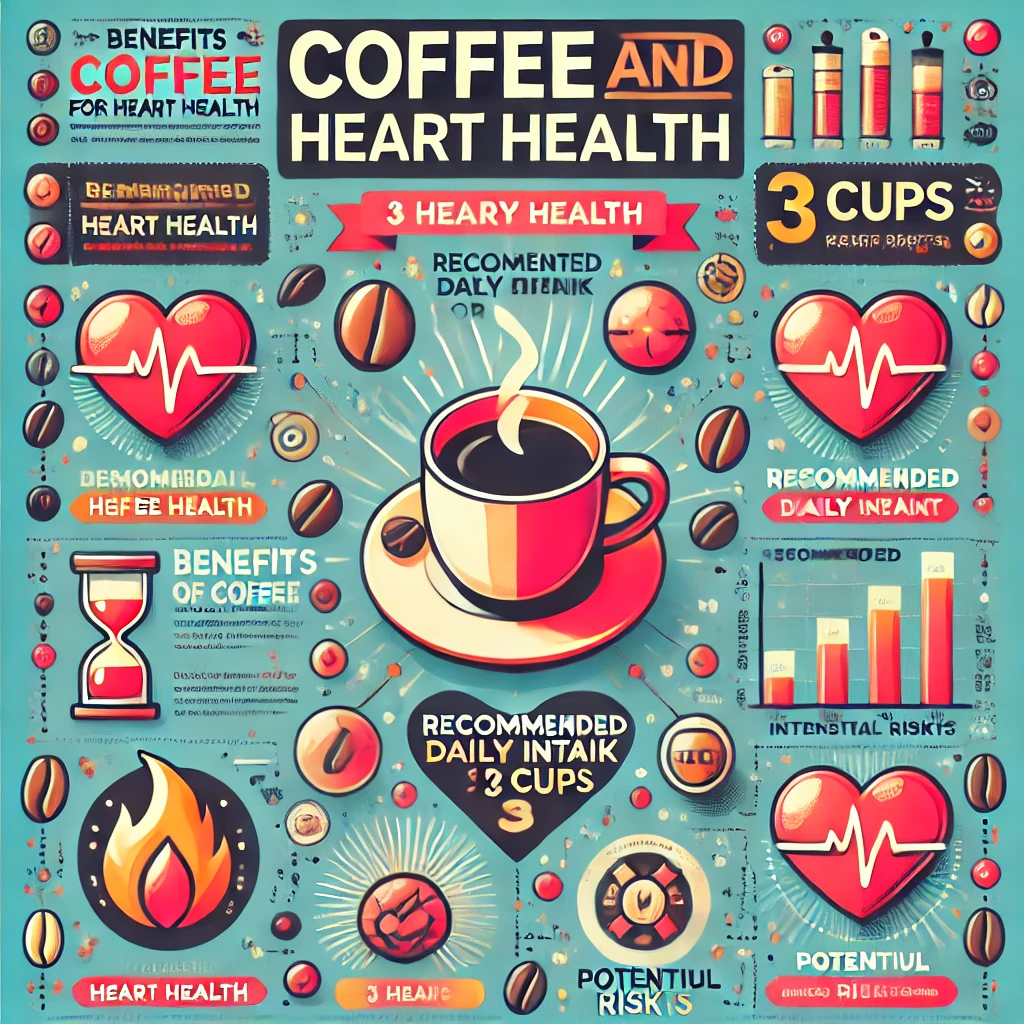Recent research has sparked an interesting debate in the health community, suggesting that drinking three cups of coffee per day might have a positive impact on heart health. For a beverage that has been both celebrated and criticized, this new study sheds a favorable light on the beloved drink, particularly for its potential cardiovascular benefits.
The Science Behind Coffee’s Heart Health Benefits

For years, coffee has been a staple in many households, and its effects have been widely studied. According to recent research, moderate coffee consumption—around three cups daily—may contribute to better heart health. But how does it work?
Coffee contains antioxidants and anti-inflammatory compounds that are known to support the body’s overall health. These compounds help reduce oxidative stress and inflammation, two significant factors in heart disease development. Additionally, coffee helps improve insulin sensitivity, which could lower the risk of type 2 diabetes—a condition often linked to cardiovascular issues.
Moreover, some studies suggest that coffee can enhance blood vessel function and help regulate blood pressure levels, further contributing to a healthier heart.
How Much Coffee is Too Much?

While moderate coffee intake shows potential benefits, it’s important to remember that excessive consumption could lead to side effects. High doses of caffeine can cause jitteriness, increased heart rate, anxiety, and in some cases, higher blood pressure. Therefore, it’s essential to strike a balance. For those who are sensitive to caffeine, switching to decaf might allow them to enjoy the taste and some health benefits without the stimulating effects.
Who Can Benefit Most?
The study emphasizes that moderate coffee consumption benefits healthy individuals, particularly middle-aged adults. However, those with existing heart conditions or high blood pressure should consult with their healthcare provider before making coffee a daily habit, as caffeine’s effect can vary depending on individual health conditions.
Conclusion: Coffee in Moderation is Key
While the news about coffee and heart health is exciting, it’s important to remember that balance is everything. For coffee lovers, this could be an opportunity to enjoy their favorite beverage guilt-free. However, moderation remains key, and individuals should always be mindful of their body’s response to caffeine.
This study is part of a growing body of evidence supporting the idea that coffee, when consumed in moderation, can be part of a heart-healthy lifestyle. So, if you’re a coffee fan, you might just be toasting to better heart health with every cup!
50 frequently asked questions (FAQs) related to coffee
1. Is coffee good for heart health?
Yes, moderate coffee consumption (about three cups per day) may benefit heart health by providing antioxidants and improving blood vessel function.
2. How does coffee affect blood pressure?
Coffee can temporarily raise blood pressure due to caffeine, but regular consumers may develop a tolerance, leading to no significant long-term effects.
3. What is the ideal amount of coffee to drink daily?
Most studies suggest that consuming three to four cups of coffee per day is beneficial for most adults.
4. Can coffee reduce the risk of heart disease?
Some studies indicate that moderate coffee consumption may be associated with a lower risk of heart disease.
5. What are the health benefits of coffee?
Health benefits include improved cognitive function, reduced risk of certain diseases, enhanced physical performance, and increased longevity.
6. Can I drink coffee if I have high blood pressure?
Consult your doctor, as individual responses to caffeine vary. Moderate consumption may be acceptable for some.
7. Does decaffeinated coffee have the same health benefits?
Decaf coffee contains some antioxidants, but it has less caffeine. It may still offer health benefits, though they might be slightly reduced.
8. What nutrients are found in coffee?
Coffee contains vitamins B2 (riboflavin), B3 (niacin), B5 (pantothenic acid), and small amounts of magnesium, potassium, and antioxidants.
9. Can coffee improve athletic performance?
Yes, caffeine can enhance physical performance by increasing adrenaline levels and breaking down body fat for energy.
10. Does coffee affect sleep?
Caffeine can disrupt sleep patterns if consumed too close to bedtime. It’s best to limit intake in the afternoon and evening.
11. Is coffee addictive?
Caffeine can lead to dependence in some individuals, causing withdrawal symptoms like headaches and fatigue if intake is reduced suddenly.
12. What are the side effects of excessive coffee consumption?
Excessive coffee can lead to anxiety, restlessness, digestive issues, insomnia, and increased heart rate.
13. Can coffee interact with medications?
Yes, coffee can interact with certain medications, especially those affecting the heart or blood pressure. Consult your doctor.
14. Does coffee cause dehydration?
While coffee is a diuretic, moderate consumption does not significantly lead to dehydration for most people.
15. Is black coffee healthier than coffee with cream and sugar?
Black coffee has fewer calories and no added sugar or fat, making it a healthier option for those watching their weight.
16. Can coffee help prevent diabetes?
Some studies suggest that regular coffee consumption may lower the risk of developing type 2 diabetes.
17. What is the best time to drink coffee?
Many experts suggest drinking coffee in the mid-morning, as cortisol levels peak in the early morning.
18. Does coffee increase cholesterol levels?
Unfiltered coffee (like French press) may raise cholesterol levels, while filtered coffee generally does not.
19. Are there any risks associated with coffee consumption?
Risks exist, especially with excessive consumption, including increased heart rate, anxiety, and digestive issues.
20. Is it safe to drink coffee during pregnancy?
Pregnant individuals should limit caffeine intake. Most guidelines suggest no more than 200 mg (about one 12-ounce cup) of coffee per day.
21. Does coffee have any effect on mental health?
Moderate coffee consumption may improve mood and cognitive function, but excessive amounts can increase anxiety.
22. Can coffee lead to weight loss?
Caffeine may boost metabolism and promote fat burning, but these effects are usually temporary.
23. What type of coffee is healthiest?
Black coffee is generally considered the healthiest option due to its low calorie count and absence of added sugars or fats.
24. Can coffee cause acid reflux?
Caffeine can relax the esophageal sphincter, potentially leading to acid reflux in some individuals.
25. Is there a difference between espresso and regular coffee?
Espresso has a higher concentration of caffeine and is brewed differently than regular drip coffee.
26. Can coffee help with headaches?
Caffeine can help alleviate headaches for some people, especially migraines, but can also trigger them in others.
27. Does coffee contain any calories?
Black coffee has almost no calories. Adding cream, sugar, or flavored syrups will increase the calorie content.
28. What are the benefits of drinking coffee after a workout?
Coffee may help reduce muscle pain, improve recovery time, and enhance performance during subsequent workouts.
29. Can children drink coffee?
It’s generally not recommended for young children due to its caffeine content, which can affect sleep and behavior.
30. How does coffee consumption change with age?
Older adults may metabolize caffeine more slowly, so they might need to reduce their intake to avoid side effects.
31. Does coffee stain teeth?
Yes, coffee can stain teeth over time due to its dark pigments. Regular dental hygiene can help minimize staining.
32. Can I drink coffee if I have anxiety?
If you experience anxiety, consider limiting caffeine, as it can exacerbate symptoms in some individuals.
33. Is coffee consumption linked to longevity?
Some studies suggest that moderate coffee drinkers may have a lower risk of death from certain diseases, potentially contributing to longevity.
34. Does coffee affect fertility?
Some research suggests that excessive caffeine intake may affect fertility, but moderate consumption is generally considered safe.
35. Can I drink coffee while fasting?
Black coffee is typically allowed during fasting periods, as it has no calories. However, adding sugar or cream breaks the fast.
36. What is the caffeine content in different types of coffee?
A standard 8-ounce brewed coffee contains about 95 mg of caffeine, while a shot of espresso contains about 63 mg.
37. Can coffee help with depression?
Some studies suggest a correlation between moderate coffee consumption and a lower risk of depression, but more research is needed.
38. Does coffee increase heart rate?
Caffeine can temporarily increase heart rate in some individuals, especially those who are not regular consumers.
39. Can I drink coffee before surgery?
Consult your doctor, as caffeine can affect certain medications and anesthesia.
40. Does adding sugar or cream negate coffee’s health benefits?
While it doesn’t completely negate benefits, adding sugar or cream can increase calorie intake and reduce the overall healthfulness of coffee.
41. Is coffee safe for individuals with heart disease?
Moderate coffee consumption may be safe for many individuals with heart disease, but consult a healthcare provider for personalized advice.
42. What is the best way to brew coffee for health benefits?
Filtering coffee through a paper filter can reduce cholesterol-raising compounds and make it a healthier option.
43. Does coffee have any anti-inflammatory properties?
Yes, the antioxidants in coffee may have anti-inflammatory effects, contributing to overall health.
44. Can I drink coffee while taking blood thinners?
Consult your healthcare provider, as coffee can interact with certain blood thinners.
45. What are the differences between light, medium, and dark roast coffee?
Light roast has more acidity and caffeine, medium roast balances flavor, and dark roast has a stronger taste with less acidity.
46. Is coffee a good source of antioxidants?
Yes, coffee is one of the richest sources of antioxidants in the Western diet.
47. Can I drink coffee if I have gastrointestinal issues?
Some individuals with gastrointestinal issues may need to limit coffee intake, as it can irritate the digestive tract.
48. Does coffee consumption have any effect on cholesterol levels?
Unfiltered coffee may raise cholesterol levels, while filtered coffee generally does not have this effect.
49. Can coffee improve digestion?
Coffee can stimulate bowel movements and may help with digestion for some individuals.
50. What should I do if I experience negative side effects from coffee?
If you experience negative side effects, consider reducing your intake or switching to decaffeinated coffee and consult a healthcare professional if symptoms persist.



